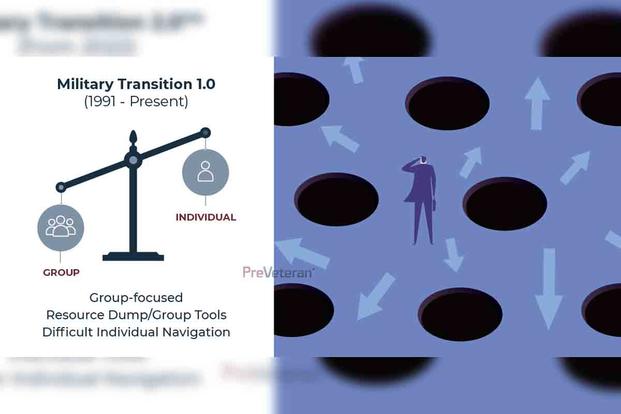When Reservist Bill Lyons landed in Bosnia on Sept. 11, 2001, he and his unit expected a routine peacekeeping mission. Instead, they spent the next seven months hunting terrorists.
After his tour of duty, Lyons happily returned to civilian life, where danger and death were not constant companions. The city of Somerville, Massachusetts, gave him his old job as director of traffic and parking. He had always prided himself on his communication and problem-solving skills, as well as his ability to satisfy constituents during their encounters with government.
Now, however, he found it difficult to focus, and he felt frustrated fielding calls about "allegedly unjust parking tickets" or petty complaints, such as someone parking in front of a house.
"I'd seen kids with missing limbs," Lyons said. "I was still very involved in the war on terrorism. My tenor and tone with constituents changed dramatically. I was curt and less willing to hear out minor complaints."
Today, as reservists return from dangerous but adrenaline-filled tours of duty in Iraq and head back to once-challenging jobs they now see as mundane, Lyons' experience two years ago is instructive.
Sort Out Your Priorities
"You return with a lot of mental baggage on both a personal and professional level," said Alex Baxter, managing partner at Lucas Group, an executive search firm specializing in military talent. "The civilian world is a lot different from the military. In the workplace, people have different expectations of what can be done. You can get very frustrated if people don't meet the standards you're accustomed to, but you're not on a military timetable anymore. Tasks get missed; jobs don't get done."
Communication is important, Baxter says. "You have to convey what you want done, but you can't bark orders," he said. "Civilian work demands more persuasion, even with someone who reports to you. If you treat them like they're under your command, you lose loyalty and suffer turnover."
"It's a big adjustment," said Joe Riggio, a Marine for 26 years who now writes about making the transition to civilian life. "You've been in life-or-death situations, you're finally reunited with your family, and now all of a sudden, you've got a project deadline. You have to be professional, but you also have to sort out what's important to you personally."
There may be special difficulty if a company has no clear policy on reintegrating returnees, or if co-workers oppose the military effort in Iraq. Resentment may be expressed as: "I've done your job for a year. Don't tell me what to do."
Riggio describes the natural reaction: "Hey, buddy, I was over there fighting for you." However, returnees must resist that impulse and convince themselves: "They just don't understand. I can't get caught up in conflict or office politics. I have to remember, these guys don't have a clue."
Of course, that is easier said than done. "War is 24/7," Riggio said. "Christmas and New Year's blend into one. All of a sudden, you're back in a Monday-through-Friday world. You have to keep that in mind and realize it takes awhile to adjust."
Once you return, you're being paid to do your job, Lyons says.
"You've got to learn to focus. When your mind wanders to your friends overseas, you have to snap back and realize life does go on here." Though he struggled to maintain a professional demeanor, he rediscovered his civilian work rhythm after a few months. However, he says the underlying tension never went away.
Resources to Help Vets Adjust
The military itself can ease the adjustment. Active members have access to transition counselors at their full-time post; some soldiers are ordered to meet with them before returning home. The MWR (Morale, Wellness and Recreation) division is another resource. Reservists may consult with transition and MWR officers at their base even after returning home.
Of course, some returnees find themselves so miserable or bored back in their old jobs that they consider changing careers. For them, the news is good. Skills learned in the service can be leveraged into a different position, even an entirely new field.
In industries as varied as contracting and information technology (IT), many employers consider military experience a plus. And the government offers veterans a variety of scholarships.
Find the Right Veteran Job
Whether you want to polish your resume, find veteran job fairs in your area or connect with employers looking to hire veterans, Military.com can help. Subscribe to Military.com to have job postings, guides and advice, and more delivered directly to your inbox.











